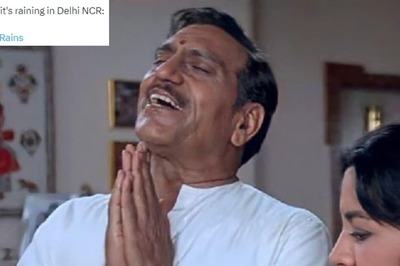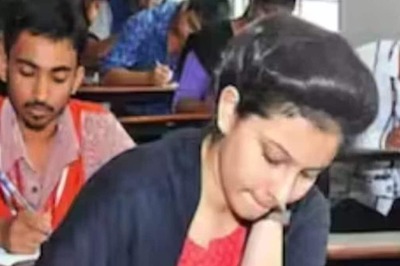
views
CHENNAI: The conditions relating to compulsory service in government hospitals for two years or instead execution of bond for Rs 3 lakh in respect of non-service candidates aspiring to go in for superspecialty courses, have been upheld by the Madras High Court.It would not be open for the PG doctors, who had agreed and signed the prospectus conditions and executed necessary bonds, to escape from the conditions, Justice K Chandru observed on Thursday.After completion of MBBS course, Dr VS Rajanikanth and six others applied for post-graduate studies in various disciplines in 2008-09. Accepting the conditions stipulated in the prospectus that they would work in any government hospital for two years or return Rs 3 lakh towards bond, they executed agreements. However, on completion of their PG course, they wanted to pursue their superspeciality courses and prayed for exemption from the conditions for three years.As their request was denied, they moved the Madras High court with the present writ petitions.In its counter, the government submitted that it had spent huge amounts running to several lakhs for each candidate for imparting medical education. Besides, they were also provided with a stipend starting from Rs 15,000 per month, it pointed out.Disposing of the petitions, Justice Chandru, after citing various judgments of the Apex Court, observed that there was no escape for the petitioners from complying with the bond conditions. The reasons, which prompted the government to impose the conditions, could not be said to be either unreasonable or arbitrary.There was not even a challenge to the insertion of the said clauses in the prospectus or unreasonableness of the amount quantified for breach of the bond. Petitioners had accepted the conditions on their own volition and there was no compulsion or contravention to the provisions of the Indian Contract Act. The conditions, neither suffered from any arbitrariness nor it was done due to any unequal bargaining power. When there were thousands of candidates standing in the queue for direct selection to PG courses and the petitioners had the advantage of being selected, they could not claim that they had signed the bond with unequal bargaining power. If they had to resilefrom the terms of the bond relating to compulsory sevice, there was no other option except to pay the quantified damages as agreed to by them in the bond, the judge said.




















Comments
0 comment